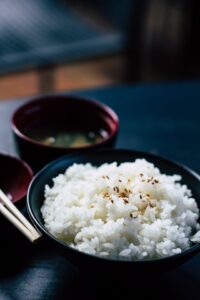 This news on natural headache remedies is provided by Nutrition Breakthroughs, maker of Sleep Minerals II.
This news on natural headache remedies is provided by Nutrition Breakthroughs, maker of Sleep Minerals II.
*****************************************
Have you ever experienced a painful headache?
Many people who suffer with the pain of headaches or migraines are reaching out for natural, safe remedies, in order to avoid the side effects that can come with drugs or medications.
A headache is defined as a continuous pain in the head, whether it’s a chronic daily tension headache caused by muscle contractions or it’s a full blown migraine. A migraine is a throbbing, pounding pain that can last from a few hours to a few days. It can come from sensitivity to noise or light and often has an aspect of nausea or stomach upset.
There are a number of natural headache remedies that have been shown in studies to be effective. Here are some of the most studied ones.
B vitamins
In a study from Griffith University in Brisbane Australia, scientists studied 52 people diagnosed with migraines. They were split into two groups and one half received a daily dose of B vitamins that included 25 milligrams of B6, 2 milligrams of folic acid (vitamin B9), and 400 micrograms of B12, After six months, there was a significant lessening of migraine disability and symptoms from 60% to 30%. No reduction was seen in the placebo group.
Cayenne
The powerful active ingredient in Cayenne pepper is known as capsaicin. It is known for its ability to remedy pain and inflammation. One study on capsaicin for headache relief was published in the Clinical Journal of Pain. The researchers noted that capsaicin inhibits Substance P in the body, which is a substance that helps transmit pain signals.
Substance P is a part of what creates feelings of pain and capsaicin helps to remove it. The study found that when capsaicin was applied topically to the nasal passages, the participants found relief for headaches, whereas those taking the placebo didn’t. Capsaicin is available as a pill, skin cream or nasal spray.
Gluten free diet
In the quest for natural remedies for headaches, scientists have researched whether or not there’s a connection between migraine headaches and the gluten found in wheat, barley, rye and oats. Gluten is a protein-like substance that gives the dough from grains its elastic texture. One study from the journal “Neurology” discovered that eating a gluten-free diet brought relief from migraines to 9 out of 10 of the participants. This leads to the possibility that foods containing gluten can bring on headaches.
Magnesium
Studies have found that people with migraine headaches have low concentrations of magnesium in their body. The word “cephalalgia” literally means head pain or headache. In a German study of 81 migraine patients published in the journal “Cephalalgia”, 42 percent of the people taking oral magnesium had reduced both the duration and intensity of their migraine attacks. They also reduced their reliance on medications to control migraines.
Natural headache remedies can be a good first defense against headaches and migraines and they can help a person to avoid medications.
This natural health news is shared with you by Nutrition Breakthroughs, a provider of nutrition articles and effective natural remedies since 2001. Nutrition Breakthroughs, makes the original calcium and magnesium based natural sleep aid Sleep Minerals II.
L.R.C. of Massachusetts says: “I had become dependent on sleeping drugs and couldn’t sleep without them. Now I take the Sleep Minerals before bed and I can sleep through the night without drugs. I’m also able to easily fall back to sleep if I do have to get up. Another benefit is this helps alleviate my chronic fatigue and aches and pains.”
For more information on Sleep Minerals II, visit this page.



